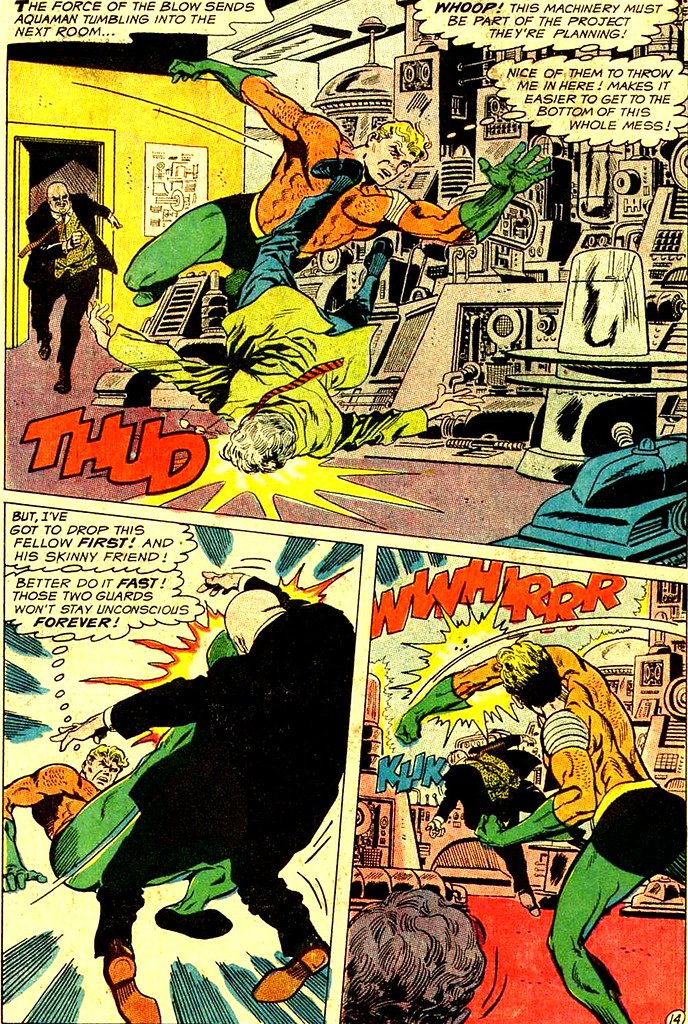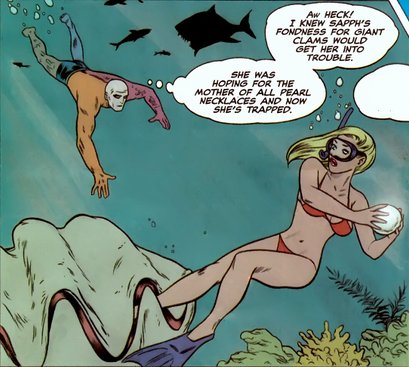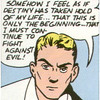Let's talk about something
vital to the type of fiction we all enjoy. Let's talk about
suspension of disbelief.
Suspension of disbelief -- as Samuel Taylor Coleridge put it -- is a method
"to transfer from our inward nature a human interest and a semblance of truth sufficient to procure for these shadows of imagination that willing suspension of disbelief for the moment, which constitutes poetic faith."Put more simply, that means that the author (or director) of a work must infuse it with enough humanity and interest in order for the reader (or viewer) to
willingly ignore the fanciful elements of the story.
This is not necessarily an easy thing to do, and it requires an audience that is
willing to suspend their disbelief. This isn't hard to find in the world of comic books. We're willing to ignore a lot of things that are pretty fantastic. We know that men can't fly and that a man who dresses up as a bat couldn't
really stop crime effectively. But we are willing to forget about that because it makes a good story.
But it's not entirely the
reader's job to suspend disbelief. In fact, traditionally -- and in my view
appropriately -- it's largely the job of the creator. The author has to know their audience and tread a thin line when it comes to suspension of disbelief.
This concept came to a head for me when I went to see
Transformers: Revenge of the Fallen this past weekend. Yes yes, I know. It's a movie about giant transforming space robots. And I am willing to believe that for the purposes of the movie. Because, you see, there
might be giant transforming space robots out there. It's exceedingly unlikely, but not impossible.
The moment in the movie when my wall of suspension came crashing down was from a
very small thing in the scheme of things. Though I am willing to believe that such robots might exist, I
cannot for a moment believe that there might be an alien weapon inside the Great Pyramid at Giza. Why not? Because I
know for a fact that there isn't one.
I have seen photos of the inside of the Great Pyramid. Egyptologists have combed every inch of the structure. Not only
isn't there an alien weapon inside but
there can't be. That was the moment that suspension of disbelief was taken too far.
A good example can also be found within the pages of comics. Scipio over at the Absorbascon has talked about it before in regard to Martian Manhunter. Scipio notes that
"the Martian Manhunter's origin requires too much suspension of disbelief." And he's right. We
know there aren't cities on Mars. We've got photographs. We know that there wasn't an advanced civilization there at any time in the immediate past. We
know this.
These kinds of problems truly aren't hard to fix. They require little more than a modicum of effort, some planning, and
common sense. Setting aside
Transformers, it wouldn't take much effort to make the Martian Manhunter's origin a little easier to swallow. In fact, I think this very point might have been done before. What if we say that J'onn J'onzz was not just pulled through space when he was sent to Earth, but through
time?J'onn J'onzz is not from the Mars of the present or even the immediate past. He is from a past so far removed from the present that all trace of his civilization has been wiped away. It doesn't remove all the problems, but it lessens them, makes suspension of disbelief a lot easier, and adds additional pathos to the character.
But again, it's not
my job (except in the stuff
I have written) to secure the suspension of disbelief. All too often writers and directors in this age are trying to pan that job off to the reader. But it doesn't work that way. If you're a writer or an artist, remember that. It's up to
you to make it work. There are literally no limits in fiction. But there boundaries of a
sort. They are the ones you set for yourself. And you
must set them. Or everything will come tumbling down.
Labels: Martian Manhunter
 I watched in dismay this week as my ill-coordinated doppelganger inflicted serious damage upon the Justice Society of America.
I watched in dismay this week as my ill-coordinated doppelganger inflicted serious damage upon the Justice Society of America.












 Name: Diamondrock
Name: Diamondrock
 Name: Azrael
Name: Azrael
 Name: Doctor Polaris
Name: Doctor Polaris
